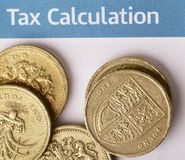Introduction:
Dividends are a common form of income for individuals who invest in shares or own businesses in the United Kingdom. However, it’s crucial to understand the tax implications associated with dividends to ensure compliance with HM Revenue and Customs (HMRC) regulations. This comprehensive guide aims to demystify the UK dividend tax, providing clarity on the rules, rates, exemptions, and important considerations for taxpayers.
What is UK Dividend Tax?
Dividend tax is the tax paid on the income received by shareholders or business owners in the form of dividends. In the UK, dividends are subject to taxation, ensuring a fair contribution from individuals who benefit from company profits.
Understanding the Rates of UK Dividend Tax
The rates of UK dividend tax vary depending on the individual’s income tax band. As of the current tax year, the following rates apply:
- Basic Rate Taxpayers: 7.5%
- Higher Rate Taxpayers: 32.5%
- Additional Rate Taxpayers: 38.1%
Who is Liable for UK Dividend Tax?
UK dividend tax is applicable to individuals who receive dividend income exceeding the dividend allowance threshold. This includes:
- Shareholders of companies, both UK residents and non-residents.
- Business owners who receive dividends from their own companies.
- Individuals who hold shares in investment funds or exchange-traded funds (ETFs).
Dividend Allowance: An Exemption for Small Investors
The UK government introduced the dividend allowance as a tax exemption for small investors. The dividend allowance sets a threshold up to which dividend income is not subject to tax. As of the current tax year, the dividend allowance stands at £2,000.
Impact of UK Dividend Tax on Shareholders and Business Owners
The UK dividend tax can have various implications for shareholders and business owners, including:
- Reduced after-tax income for individuals receiving dividends.
- Higher tax liabilities for individuals in higher income tax brackets.
- Considerations for business owners when determining the most tax-efficient remuneration strategy.
- Potential impacts on investment decisions and the overall attractiveness of dividend-paying investments
Frequently Asked Questions about UK Dividend Tax
Q;1 Can dividends be reinvested without triggering tax liabilities?
A1: Yes, individuals can reinvest their dividends without immediate tax implications, as long as the reinvested amount does not exceed the dividend allowance.
Q2: Is dividend tax applied at the time of payment?
A2: No, the tax liability arises when the individual receives the dividend income, not when the dividend is declared by the company.
Q3: Are there any tax reliefs or exemptions available for specific types of dividends?
A3: Yes, certain tax reliefs and exemptions apply to dividends from venture capital trusts (VCTs), enterprise investment schemes (EIS), and shares received through employee share schemes. Consult a tax professional for detailed guidance.
Conclusion:
Understanding UK dividend tax is essential for individuals who receive dividend income, whether as shareholders or business owners. By familiarizing themselves with the rules, rates, exemptions, and implications of dividend taxation, taxpayers can ensure compliance and make informed financial decisions. Remember to consult a tax professional or HMRC for personalized advice regarding your specific circumstances







